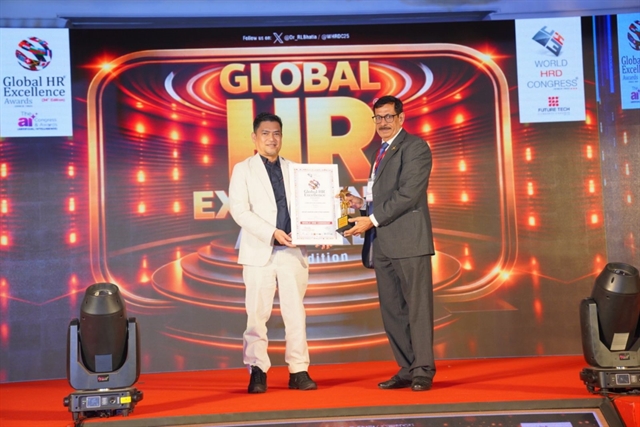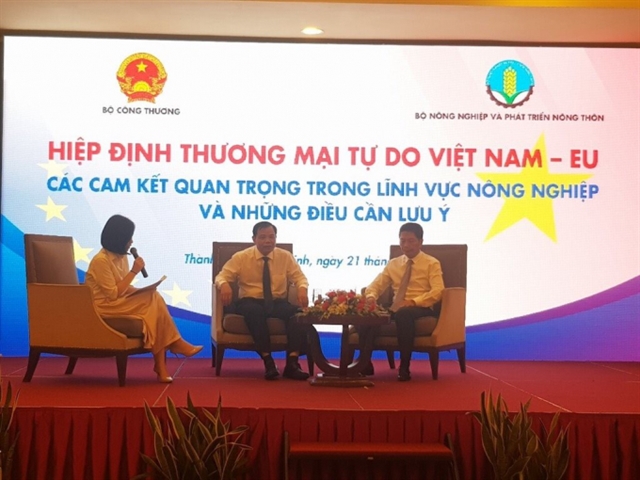 Economy
Economy

To take full advantage of the EU-Việt Nam Free Trade Agreement, Vietnamese agricultural firms should understand its important commitments, experts said.

|
| Minister of Agriculture and Rural Development Nguyễn Xuân Cường (R) and Minister of Industry and Trade Trần Tuấn Anh (centre) speak about the opportunities and challenges for Vietnamese firms following the signing of the EU-Việt Nam Free Trade Agreement at a conference in HCM City on Wednesday. — VNS Photo Văn Châu |
HCM CITY — To take full advantage of the EU-
The EVFTA is a new-generation trade deal with comprehensive standards that conform to the rules of the World Trade Organization (WTO).
It would bring great opportunities to the agricultural sector as import tariffs in the EU would gradually reduce zero, he said.
This is the highest commitment any FTA partner has given
This benefit is
Last year exports to the bloc were worth US$42 billion.
Besides, the interaction and complementariness of the two markets are very large, he said.
Therefore, the room for export growth and economic co-operation is huge, he said.
The EVFTA has given a major opportunity for Vietnamese enterprises to enter the lucrative market with 508 million people and GDP of around $18 trillion.
However, the trade deal has also brought many challenges, especially with
Businesses should be more proactive in accessing resources and small and-medium-sized enterprises should make thorough preparations and do careful research into the opportunities and challenges, and adopt measures to improve their product quality, competitiveness and productivity, experts said.
Businesses should ensure their products meet requirements related to traceability, technical standards and plant and animal safety and hygiene in the EU.
Minister of Agriculture and Rural Development